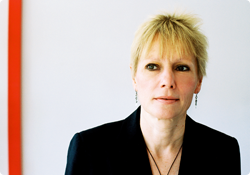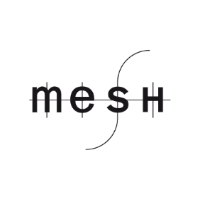
The literary scholar Ursula K. Heise is the 2022 Visiting Professor for Public Humanities of the Wissenschaftsforum zu Köln und Essen.
A pioneer of the Environmental Humanities, she will be a guest in Cologne and Essen in October 2022, giving two lectures and a public seminar. As Visiting Professor for Public Humanities, Ursula Heise will focus on the role of the humanities in the academic and public discourse on climate change and biodiversity and ask what role the analysis of narratives, images and knowledge systems play in the context of environmental and climate science research.
Ursula Heise holds the Marcia H. Howard Term Chair in Literary Studies and serves as Interim Director of the Lab for Environmental Narrative Strategies (LENS) at the Institute of the Environment and Sustainability at UCLA. She is a 2011 Guggenheim Fellow and former President of ASLE (Association for the Study of Literature and the Environment). Her research and teaching focus on contemporary literature and the environmental humanities; environmental literature, arts, and cultures in the Americas, Western Europe, and Japan; literature and science; science fiction; and narrative theory.
First Lecture: Normal Apocalypse: Climate Change and Narrative | 20.10.2022 | Köln MESH Launch
Neues Seminargebäude der Universität zu Köln
Albertus-Magnus-Platz
50931 Köln
Novelists, journalists, film directors and artists have created fictional and nonfictional stories about anthropogenic climate change for the last fifty years. The majority of these stories focus on scenarios of large-scale disaster and end-of-the-world-as-we-know-it, with cities under water as a prominent motif. Such stories have been criticized for scientific inaccuracy, sensationalism, and normalization of social injustice. At the same time, prominent writers and critics have worried that standard types of narrative are not able to capture climate change at all. This lecture will explore recent climate change narratives from different parts of the world – including North America, South America, and South East Asia – and the ways in which they negotiate the tension between large-scale disasters and the new normalcy of everyday life under conditions of climate change. It will argue that some of these works open up new ways of narrating climate change as portal of opportunities for greater social justice.
Second Lecture: Environmental Crisis and the Problem of Realism | 24.10.2022 | Essen
Kulturwissenschaftliches Institut Essen
Goethestraße 31
45128 Essen
Environmental journalists, novelists, film-makers and artists have traditionally preferred realist genres and styles to highlight the materiality and scientific grounding of environmental crises. Over the last twenty years, this convention has increasingly come into question. On one hand, climate change and other rapidly evolving ecological crises have diminished the relevance of stories and images focused primarily on individuals and families, particular places, and events commonly considered plausible. On the other hand, narrative themes and plots from speculative fiction have increasingly spread into environmental journalism and nonfiction. Concepts such as the new normal, the New Weird, and hyperobjects have sought to capture this altered type of realism. This lecture will explore the controversies about what kinds of realism are appropriate and effective in environmental communication today, and it will argue that the narrative strategies of science fiction, traditionally considered a secondary or minor genre merely designed for entertainment, offer the most interesting foundations for thinking and talking about global environmental change.
Public Seminar: Environmental Crisis and Future Visions in Science and Science Fiction | 26.10.2022 | Köln
New location: Skyfall @ a.r.t.e.s. Graduate School (3rd floor)
Aachener Str. 217
50931 Cologne
Readings:
Novel: Kim Stanley Robinson, The Ministry for the Future (2021)
Theory: Fredric Jameson, “Progress vs. Utopia” (1982)
Ursula Heise, “The Invention of Eco-Futures” (2012)
Places are limited. Please register by sending an E-mail to julia.hoydis[at]uni-koeln.de.
Deadline: October 10th, 2022.
Participants will receive a confirmation e-mail, the two theoretical texts will be made available electronically.
